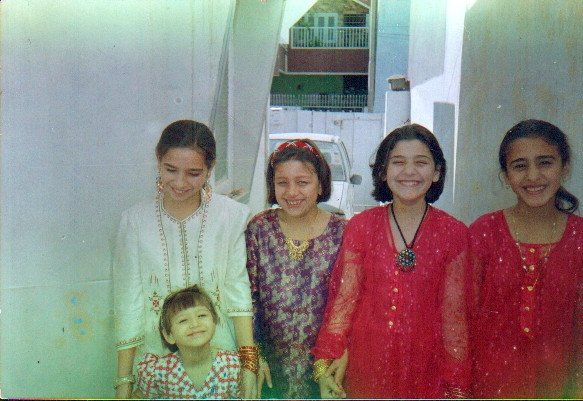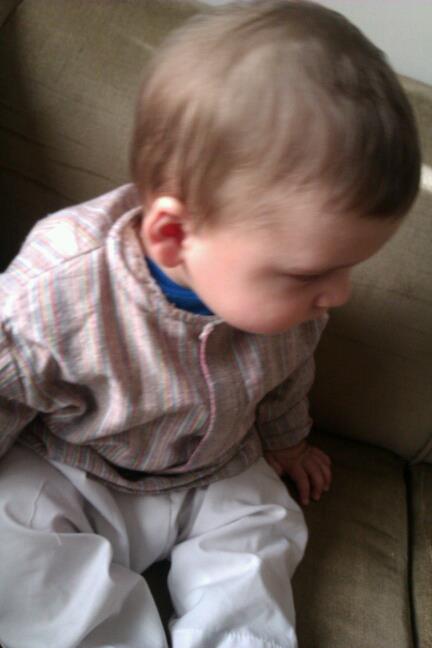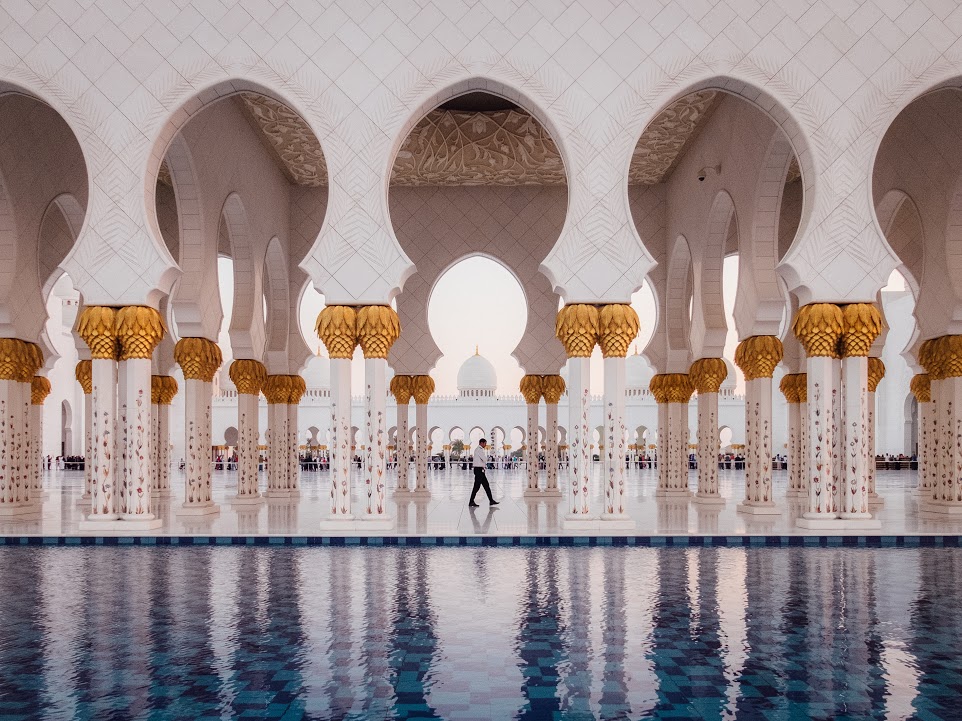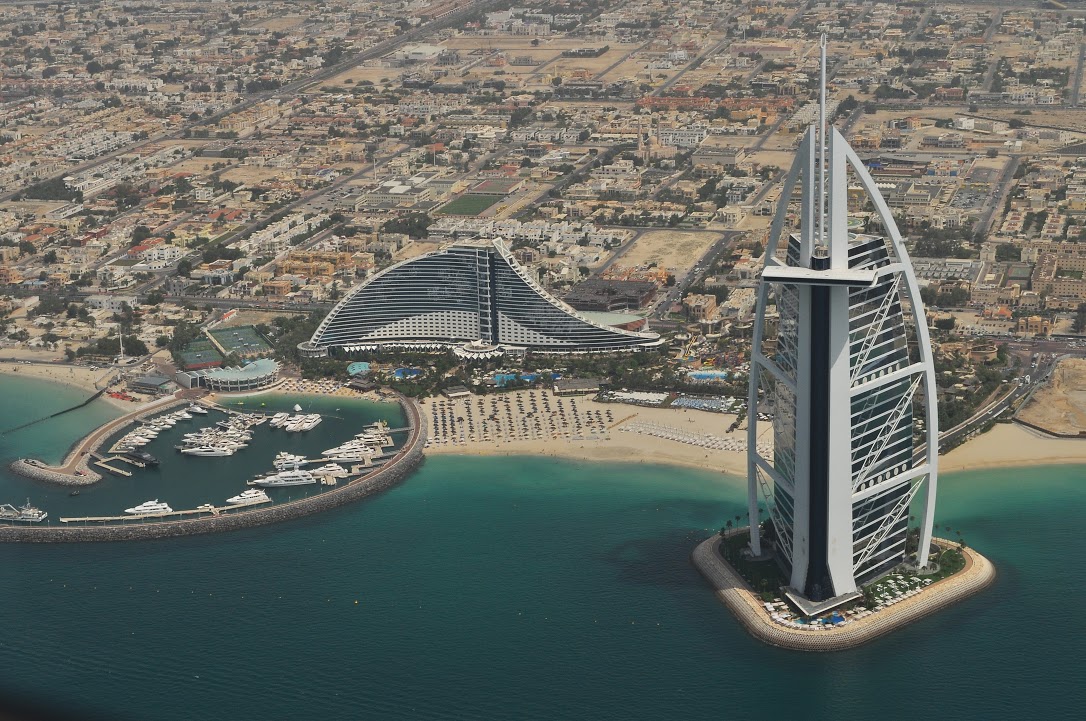
When I put the call out for people to interview for this religion series, I was contacted by a blogger who was eager to participate. When she told me more about herself and her background, I felt truly blessed to have connected. I’m extremely excited to share this interview with you!
Tell me about yourself. Where you’re from, where you live, what you do?
My name is Ayesha. I’m a stay at home mom, doing some freelance work to enjoy a few luxuries here and there. I’m from Pakistan, but currently living in Dubai, United Arab Emirates.

Why are you Muslim? Was the religion passed down? Did you discover it?
I’m a Muslim for the most conventional reason: my parents are Muslim. The religion was passed down. My father is quite a religious man. Though he never forced the religion on us but his manners and his principles made me like the religion. I had always been a voracious reader and I read up a lot on Islam. I actually fell in love with it. I strongly believe that if people saw Islam through my perspective, they would fall in love with it too.
What does it mean to be Muslim? What is unique about the faith?
I don’t think I can summarize this in a few sentences. If I tried to summarize it, I could say Islam is based on five basic principles: 1. Belief in one Allah. 2. Five prayers 3. Charity 4. Fasting during Ramadan 5. Pilgrimage to Makkah.
There is so much unique about this faith and yet it is quite similar to other religions. Muslims believe that Christianity and Judaism teach the same principles of Islam. The main teachings of these religions were lost over time since their Holy Books were changed. The teachings of Islam have basically remained the same because the Quran is still in its original words. Islam is unique because it has a very sustainable approach if people look closely.
Tell me about the mosque / practices / religious holidays.
Mosques are a major part of the Muslim culture and religion. Men are required to visit the mosque five times a day for their prayers. Apart from religious reason, mosque also has cultural significance. People from all social status stand side by side to pray, thus removing boundaries.
Other than five daily prayers, Muslims are required to fast during the month of Ramadan. After Ramadan, we celebrate with Eid ul Fitr. Eid ul Fitr is usually celebrated for three days. Eid-ul-Azha is another important religious holiday. On this holiday, we sacrifice a goat, sheep, cow or camel. The meat from the animals is divided into three equal portions: for the poor, for relatives and for home. The purpose of the sacrifice is to make people spend money and purify themselves of the love for money.

What are the pros and cons?
I mostly find that the religion has pros. In today’s materialistic society when people are looking for more and more, Islam teaches us to be satisfied with what we have. The five prayers allow us to detach from our worldly problems and develop a connection with our inner self. The only con that I find in this religion is how most people perceive Muslims. Due to the actions of extremist people, Islam is seen in a very negative light. And that feels very sad for good Muslims.
What are the misperceptions about Islam? Why do you think Islamophobia is festering across Europe and the U.S., and what can be done to help?
There are too many to count. The biggest misperception is perhaps about veiling and women rights. I am a woman and I don’t think Islam treats women unfairly. Rather the opposite. Islam asks women to be treated with special care. If we view the rights of women through the Modern lens, we won’t be able to view the beauty of how Islam treats women.
Extremist Muslims are the main reason behind Islamophobia. These extremists are not even Muslims in the most basic sense. They have changed Islamic rules to suit their perspective. Most people use Islamic verses without their context and this has created all this negativity around Islam.
Do you try to convert people?
I once tried but usually it turns into a debate. I don’t think we can convert people by fighting with them. So I stopped. I hope my actions would inspire other people to convert. If someone comes and wants to learn, I would be very willing to help.
Will you pass the religion down to your children?
Definitely. I can’t force my children to follow my religion but I would expose them to its beauty.

What do you believe about the after-life?
Yes, I strongly believe in after-life.
Tell me about an important religious experience for you.
There was once a time in my life when I went through two miscarriages back to back. I was definitely depressed. I didn’t admit it at that time. But during a religious discussion my friend said, ‘People think that there should be no suffering if there is a God. Allah never claimed that he would stop suffering. Suffering is there to make us appreciate the good things in our lives.’ At that time, her words had a deep impact on me.
Who in your religion do you admire or look up to?
Prophet Muhammad (PBUH). Even the people who didn’t believe in Islam looked up to him. They trusted his words. They called him honest. I admire him because he was able to gain trust of his enemies also.
How has the Trump presidency affected you or your religion or your beliefs?
Trump presidency has had no impact on me. But it has made me appreciate how non-Muslims have come to support Muslims. It’s not easy standing up for something you don’t believe in.
What questions do you have about other religions?
Not much. I am against raising questions and pointing fingers at other people’s religion.
What else do you want me or people to know about your faith?
I want people to not look at Islam in the context of religious extremist. Islam has a very deep essence. You can truly appreciate Islam if you look through the eyes of a true believer. The best thing about Islam is its stress on balance. It doesn’t ask us to forsake the worldly life for religion but to develop a balance. And in everything Islam asks for moderation. Moderation in eating, spending, living, doing.

Is your husband Muslim as well? How did you meet?
Yes my husband is also a Muslim. We met at college. He fell in love with me and eventually persuaded me to marry him. We now have two super naughty kids.
How many kids do you have?
Two. One boy (4 years) and a girl (1 year). Currently we are deciding which one’s our favorite.
Women and men can visit mosques, correct? But it is men who are required to go? Can people of other faiths visit a mosque?
Yes both of them can visit a mosque. But they are segregated. Also, smaller mosques usually don’t have a women section so women can’t go there. For men, it is essential. But most men don’t go. People of all faiths can visit the mosque.
Have you been to Makkah?
Yes. I have been too. I lived in Saudia Arabia for some time and we went to Makkah frequently then.
Tell me about the after-life in the Muslim faith. Is it similar to heaven? Do you have to be Muslim to get there? Do you believe in hell? Who or what determines the after-life?
Yes, Muslims believe in after-life, heaven and hell. Our concept of after-life is very similar to that of Christians. I mentioned earlier that Islam is a modified version of Christianity so many concepts are similar in both religions. We also belief in the seven circles of hell. After-life is determined by how good you live your worldly life. To go to heaven, you must belief in the oneness of Allah, pray five times a day and to be good to others.
Like you, I had two consecutive miscarriages. But unlike you, it made me question my faith. Because I’m a religious person, I prayed fervently and expected God to hear my prayers and bring my babies to life. I was heartbroken with my experience…as if God betrayed me, someone who had believed and practiced my faith my whole life.
I’m so sorry to hear about your miscarriages. I know how hard that can be. I went through so so much and listened to a lot during that. People often say that most insensitive things (or perhaps I became very sensitive). But God never said you won’t have any difficulties in life. Sufferings test us. They make us appreciate the best things in life. I will give you an example of a spoilt child. A spoilt child is given everything in life. He does what he pleases. He doesn’t often listen to his parents. But spoilt children have difficulty adjusting to the real life. They find it harder to make friends. They often become depressed and lonely even though their parents give them everything.
On the other hand, consider a child whose parents balance the good and the bad. They don’t buy him the best toys. And when they don’t, he cries and blames his parents. But eventually he forgets and as an adult, he realizes the importance on not getting everything. Allah loves you more than your mother. But even the best of mothers (or rather the best mothers) scold their children and don’t give them everything.
Can you share with me a favorite prayer or religious passage?
Fabi-ayyi ala-i rabbikuma tukaththibani
Translation: Then which of the favours of your Lord will ye deny?
We take the world for granted. Everything in the world is so balanced. It’s impossible for me to believe that all of this occurred by chance. Just consider the veins in our bodies. There are so many. But they never get tangled. The cords of our headphones get tangled all the time and there’s just two of them. It’s nothing short of a miracle. Everything is. The crops, the movement of the sun and the earth, the entire ecological circle. And it all speaks of a higher being who made it.

I hope you enjoyed reading this interview as much as I enjoyed conducting it. Here’s a link to Ayesha’s blog, where she writes about parenting, book recommendations, and adventures in and around Dubai.
Read the full blog series: An Exploration of World Religions below.
I truly enjoyed Ayesha’s interview here today and while I knew a bit about the Muslim religion from what I learned from World History and religion class from my college days, I definitely feel a learned a bit more here today. So I truly appreciate Ayesha sharing more about her religion here with us today.
It was a pleasure sharing my views. Being cooped up in an apartment with two kids in Dubai heat, makes you just want to talk (or write, more like it).
This is a beautiful interview, Catherine, and I really enjoyed Ayesha’s perspective on life and her religion. It was interesting to hear more about Islam (I admit, it’s not a religion I know too much about) and was sorry to hear about her two miscarriages. The comment about which kid she favors made me giggle 🙂
Thank you for sharing and hope you’re having a great week, my sweet!
What a wonderful interview! I know very little about Islam, and I really enjoyed learning more from a fellow mom. And it’s good to know that naughty children come in all religions 😉
Very Beautiful. Most followers of Islam are peaceful like this lady. Thanks for this wonderful interview and teaching me a little more about Islam.